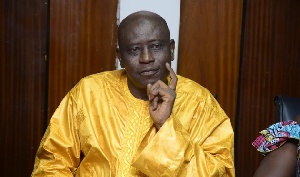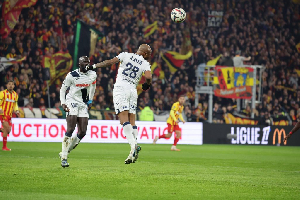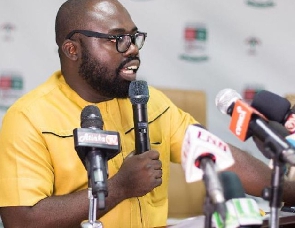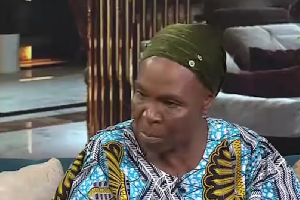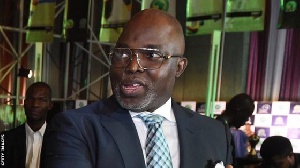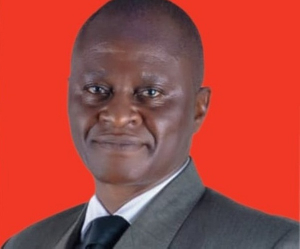Isaac Karikari (bkkarikari@yahoo.com)
The New Patriotic Party may not be in power, nevertheless, I believe the hope of every Ghanaian is that, especially with regard to development and progress, we move forward. It may have taken us quite a long time and it may still take us some time but I believe a glorious future awaits us. With some biblical and historical allusions, I write about our moving forward and how tribalism poses a threat to our forward march.
As the children of Israel, with Joshua as their leader, made their onward march for the “Promised Land”, the land flowing with milk and honey, they came up against the walls of Jericho. These walls stood between them and the land they all dreamt of possessing.
Just like the nation of Israel, our nation makes a forward march. A march towards progress and development. A march for prosperity and glory. Again, just like the nation of Israel we find ourselves up against a wall but in our case it is not the wall(s) of another nation. We ourselves make that wall. We are that wall, the obstacle between us and the dreams we hope to achieve. The wall is not as there was in Germany (The Berlin Wall) until 1990. It is not a concrete structure or steel fabrication. It is not a physical thing but it is also not intangible. It is real; it can be perceived and felt. Like they continued to say in Germany, even after the Berlin Wall had been brought down, it is a wall in our heads.
This may be distasteful and I myself do not wish for anything like that but it is a point that is worth noting:
The Berlin Wall did keep East and West Germany at bay. But for us, the presence or existence of a wall in our heads may not keep us at bay from each other. This wall could rather cause us to lunge at each other as was the case in the United States of America in the 1860s; Nigeria, in the 1960s; Rwanda, in the 1990s and just recently, Kenya.
We like talking of being one nation and one people. That is nice, but events that unfold at times prove that though we might have made some progress we haven’t fully attained that status yet. Though we often talk about the polarization of the nation in political circles, it is actually a major social problem. It is still not uncommon to hear venomous tribal sentiments in today’s Ghana. That shouldn’t be encouraged and tolerated.
The recent incident surrounding the acquisition of an office for use by the immediate ex-president and the ‘outrage’ of the Ga Youth may have had political undertones alright, but it shouldn’t be quickly written of as a mere political agitation under the guise of a land issue. Though not often said the issue of tribal conflict is real. What people are waiting for is a platform to carry out their devious schemes and in politics it seems they are getting one. Through politics we are giving room and creating avenues for tribal and ethnocentric ideals to take root.
The agitation of this group was slowly but steadily breeding disaffection for Gas among some Akan speaking groups just like incidents during the Election 2008 run off in the Volta region did for the Ewes.
Speech is often said to be silvern and silence golden but President Mills’ silence on the above mentioned issue, in my opinion, was not golden. I also think groups and bodies such as the National Peace Council and the Christian Council should speak more often when such issues arise. I doff my hat off for the Ga Mantse for his golden words of wisdom during that period.
The agitation may have ceased and calm seems to have been restored but some serious damages have already been done and some unhealthy notions formed. Some people have had to shelve plans they had of buying property or establishing a business or businesses in Accra because of this issue. Some I assume have been made to think twice about calling Accra home. Some have probably been made to reconsider the decision of tying the nuptial knot or entering relationships. Others have had to change their minds about making certain business agreements just because of this agitation and the inter-tribal tensions and suspicions that it generated. I am not merely hypothesizing.
Our churches, schools, the media and other civil society groups need to do more by way of getting us enlightened on the dangers of such divisions as against the benefits of having mutual respect for each other out of a spirit of love and oneness and not as a mere formality.
Divisions that cause us to view ourselves as enemies are far from good. The consequences of the North and South War on American unification and nationhood were dire. I even don’t want to talk about the Holocaust. We even have enough examples here in Africa-the Biafra War in Nigeria had some inter-tribal undercurrents. That 30-month civil war still haunts them. The Rwandan genocide remains one of the goriest historical landmarks of what tribal and ethnic tensions can result in. Memories of the bloody clashes in Kenya have not been made pale by time. That happened just last year.
The ramifications of such clashes among and within tribes in the northern part of our dear country are clear to all of us-the loss of lives, the destruction of both private and public structures, and the poisoned atmosphere that affects the proper growth and development of individuals and businesses in those regions. Thus I doubt if anybody in his right senses would want something similar on a national scale.
Ghana as a nation may be far from disintegration but it is still a fabric of ten patches stitched together. And until we become one seamless garment we will have no real beauty.
As a nation we stand, the “Promised Land” just ahead. But between us and that promise, between us and our goal, between us and glory, stands a wall. That wall is us-our tribal and political differences. Let’s come together. We shouldn’t let the walls remain. Let’s avoid tribalism and ethnocentrism as well as divisive politics. We should let the walls fall because until the walls come down, we can never make the onward march to glory.
Opinions of Monday, 20 April 2009
Columnist: Karikari, Isaac






